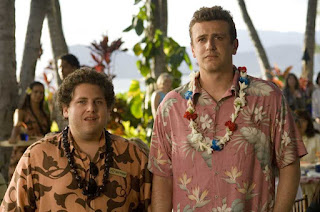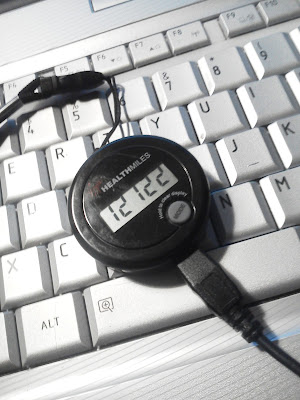Women's Lib
My first real run-in with girl power, as far as I remember, didn’t happen till I was 21 years old.
There may have been instances before that, but it wasn’t until I was in Russia that I really caught one. While we were digging holes for fenceposts at a school in St. Petersburg, the man in charge of the renovation kept trying to stop me from helping dig holes. Suddenly, the empowered girl inside me rankled. I was just as capable as the guys doing the work.
As with so many things in life, I found out later that my gut reaction was a bit off the mark. It turned out that the gentleman was more concerned about the fact that I was sitting on the ground; it is a Russian superstition that a woman who sits on bare ground will become infertile.
Yep. That one caught me off guard.
The cover story for Time magazine this week is “The State of the American Woman” and examines, in essence, the lasting effects of women’s lib. It seems that, while we have more power than ever before, we are less happy; while we have more choices, we are more stressed.
Shockingly, with the movement came both good and bad changes. Who'da thunk it?
Despite my lack of awareness and/or run-ins, I am, in a lot of ways, a product of girl power. Enough so that it doesn’t cross my mind most of the time that there are other ways to think about things. It doesn’t occur to me that someone might think I’m incapable of something just because I’m a girl; I’ve never been stopped because of it.
By all accounts, I could practically be the girl power poster child. I’m a 25-year-old woman in a mostly male field. I’m financially independent. I’ve opted to be single for the last few years instead of joining in the throngs of my friends getting married. And, moreover, I am happy. I am living proof that a woman doesn’t “need” a man.
The line seems to be in that magic word: choice. Others haven’t been as lucky as me. They’ve ended up in the same boat by circumstance instead of by choice and as such are considerably less happy.
But that -- that's the true effect of women's lib. We now have options we didn't have before. We can opt to work, we can opt to stay home, we can opt to be single or married. We are not relient upon someone else unless -- hey! -- we opt to be.
As such, we can also opt to be happy. But, as humans, we're not always very good at that. That's a whole separate post, though.
Have we gone far enough?
I suspect that we've done all we can, at least in this country; any remaining change will happen in its own time. Now, in other places there is still severe, scary, alarming oppression and as such, the focus has shifted appropriately. That is probably the best thing we can do -- move on to promote change in the places that still need it.
As for us -- there will always be statistics to quote but I don't put a lot of trust in those.
At the moment a lot of them will only take time to fix. Average salaries for women are lower -- but so is the average time women have spent in those positions. In twenty years, that number could be much more equal. There are still more male CEOs -- but once again, there are fewer women who have been with a company long enough to work up to CEO.
There are still considerably fewer women in the military, a job that is -- dare I say it -- generally better suited to men. Likewise, there are fewer male teachers.
Are we really striving for numeric equality? Does that truly benefit us?
Shouldn't we be playing to the true strengths of the sexes? That strikes me as real equality ... Everyone doing something that allows them to contribute to the best of their abilities.
Nothing about that should sound so novel.
There may have been instances before that, but it wasn’t until I was in Russia that I really caught one. While we were digging holes for fenceposts at a school in St. Petersburg, the man in charge of the renovation kept trying to stop me from helping dig holes. Suddenly, the empowered girl inside me rankled. I was just as capable as the guys doing the work.
As with so many things in life, I found out later that my gut reaction was a bit off the mark. It turned out that the gentleman was more concerned about the fact that I was sitting on the ground; it is a Russian superstition that a woman who sits on bare ground will become infertile.
Yep. That one caught me off guard.
The cover story for Time magazine this week is “The State of the American Woman” and examines, in essence, the lasting effects of women’s lib. It seems that, while we have more power than ever before, we are less happy; while we have more choices, we are more stressed.
Shockingly, with the movement came both good and bad changes. Who'da thunk it?
Despite my lack of awareness and/or run-ins, I am, in a lot of ways, a product of girl power. Enough so that it doesn’t cross my mind most of the time that there are other ways to think about things. It doesn’t occur to me that someone might think I’m incapable of something just because I’m a girl; I’ve never been stopped because of it.
By all accounts, I could practically be the girl power poster child. I’m a 25-year-old woman in a mostly male field. I’m financially independent. I’ve opted to be single for the last few years instead of joining in the throngs of my friends getting married. And, moreover, I am happy. I am living proof that a woman doesn’t “need” a man.
The line seems to be in that magic word: choice. Others haven’t been as lucky as me. They’ve ended up in the same boat by circumstance instead of by choice and as such are considerably less happy.
But that -- that's the true effect of women's lib. We now have options we didn't have before. We can opt to work, we can opt to stay home, we can opt to be single or married. We are not relient upon someone else unless -- hey! -- we opt to be.
As such, we can also opt to be happy. But, as humans, we're not always very good at that. That's a whole separate post, though.
Have we gone far enough?
I suspect that we've done all we can, at least in this country; any remaining change will happen in its own time. Now, in other places there is still severe, scary, alarming oppression and as such, the focus has shifted appropriately. That is probably the best thing we can do -- move on to promote change in the places that still need it.
As for us -- there will always be statistics to quote but I don't put a lot of trust in those.
At the moment a lot of them will only take time to fix. Average salaries for women are lower -- but so is the average time women have spent in those positions. In twenty years, that number could be much more equal. There are still more male CEOs -- but once again, there are fewer women who have been with a company long enough to work up to CEO.
There are still considerably fewer women in the military, a job that is -- dare I say it -- generally better suited to men. Likewise, there are fewer male teachers.
Are we really striving for numeric equality? Does that truly benefit us?
Shouldn't we be playing to the true strengths of the sexes? That strikes me as real equality ... Everyone doing something that allows them to contribute to the best of their abilities.
Nothing about that should sound so novel.


Comments